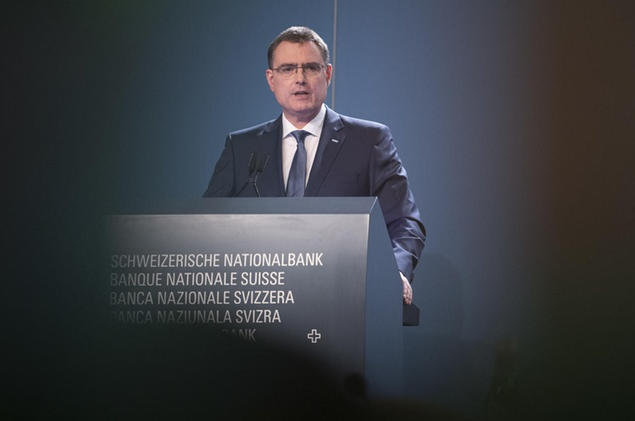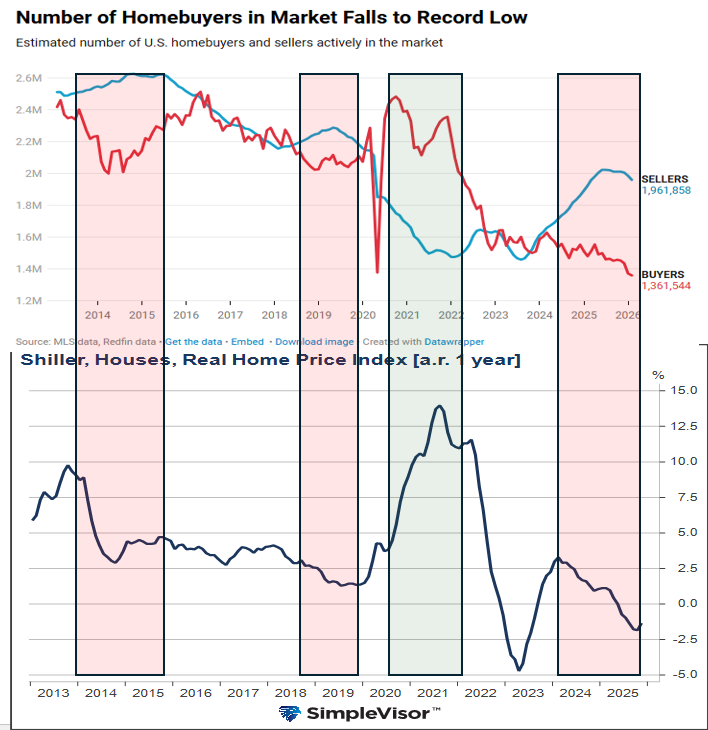 SNB chairman Thomas Jordan said the central bank will continue to defend the franc. (Keystone / Marcel Bieri)[/caption]
SNB chairman Thomas Jordan said the central bank will continue to defend the franc. (Keystone / Marcel Bieri)[/caption]
The Swiss National Bank (SNB) has kept interest rates unchanged at -0.75% but is easing the burden on commercial banks. The SNB said on Thursday that it is also intervening on the foreign exchange markets to keep the franc from appreciating too far, too fast.
The SNB’s announcementexternal link comes against the backdrop of media reports that it will take part in a massive financial aid package, worth up to CHF100 billion ($104 billion) to keep the Swiss economy afloat. The Swiss central bank declined to comment on this speculation. The SNB said on Thursday that it is raising the threshold at which commercial banks start to get charged negative interest on cash they hold at the central bank. From April 1, they will be able to hold 30 times more than their minimum capital reserves in SNB “sight deposits” before they are charged interest – up from the present limit of 25 times the minimum reserves. In addition, the SNB said it may ease restrictions on how much capital banks must keep aside to cover potential mortgage loan default losses. "The SNB is also working closely with the Federal Council [federal government] with the aim of providing the best possible support to the economy," it said in a press release. On Sunday the SNB said it was joining forces with other major central banksexternal link, including the United States Federal Reserve, to ensure the flow of US dollars into the global financial system. Earlier this week, the Federal Reserve slashed interest rates to nearly zero and would inject $700 billion into the economy. The European Central Bank (ECB) on Thursday launched a Pandemic Emergency Purchase Programme that will buy an extra €750 billion ($811 billion) worth of bonds to further beef up its quantitative easing strategy. The Bank of England said this week it would pump unlimited quantities of money into the British economy. Swiss companies are also facing a struggle after the government forced many high street shops and services to close their doors until April 19. Many feel that the government’s CHF10 billion emergency aid package will not be enough. However, the government is restricted by a statutory “Debt Brake” that limits how much debt the country can rack up at any one time. This has led to calls, particularly from KOF Swiss Economic Institute, for the SNB to raise an emergency fund of cash. This was last carried out by the SNB during the 2007-2008 financial crisis to buy up toxic assets from Switzerland’s largest bank, UBS. The SNB is also battling to keep the price of the franc stable. It does this by printing francs to buy financial instruments denominated in other currencies. The measures by the Federal Reserve, ECB, Bank of England and other central banks have made this task all the more difficult. Full story here Are you the author? Previous post See more for Next postTags: Business,newsletter





















